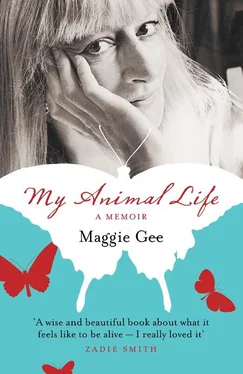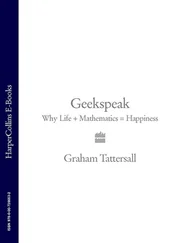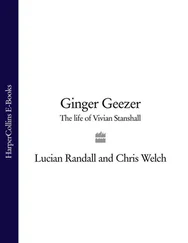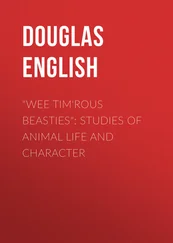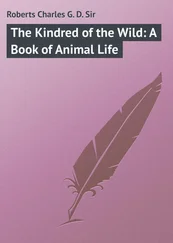Now I see that this, too, was all about class. Having left the close communities of Bucks where everyone was roughly the same, where no one could feel out of place because every street and house was alike, my parents were lost. You can leave the working-class, through sheer energy and drive, but never quite arrive anywhere else. Arrivistes! We lived in limbo, ‘new build’.)
Mum and Dad took three decades to learn the basics of middle-class social life. Firstly, a drinks cupboard, a post-separation innovation which they stocked lavishly with middle-class sweetish drinks with glamorous names like Dubonnet, Cinzano Bianco, Martini, but hardly used (we children repaired to it regularly, to cushion our fear of what had briefly been out in the open and now, after a brief reordering, was being shoved back out of sight again). Secondly, friends. Two was a milestone, but the world opened up when they started adult education classes in Norwich, at Wensum Lodge. Life regained structure and meaning. It was a forty-five-minute drive from Holt to Norwich, and a forty-five-minute drive back, but they went three times a week. More surprisingly, they actually went to different classes — my mother to Spanish and Creative Writing, my father to Drawing and Painting. (This was almost miraculous; they had been welded at the hip for decades, with my mother unable to shop, or visit the doctor, or have coffee with her daughter, or go up to London, on her own. This was the new regime, and surely a relief for Vic as well as Aileen. If you never leave your wife alone, can she ever freely come back?)
At Wensum Lodge, Vic did not have to control things. The teacher, at last, could relax into being taught. Vic idolised his teachers, one in particular, Peter Jamieson, who did fine-grained black-and-white woodcuts, one of which hangs in our dining-room now, an arch of profusely detailed oak-leaves framing a sheltered garden with cow parsley in bloom, in the middle ground a house whose roof protects the onlooker from the sun’s aureole, blazing behind the chimney. How happy Dad was to buy it: ‘Exhibited in RA Show 1972’. Fear no more the heat o’ the sun . And the foibles of their classmates, mostly retired, of course, were an interest. My father was still prone to prickliness, especially with males — this one was ‘a show-off’, that one ‘a big mouth’ or ‘too big for his boots’ — but many of them he grew fond of; retirement meant he no longer had to stay top of the heap. Time for a rest.
You could say, if you wanted to be reductive, that the final and furthest point of their escape from the old dark class was a new brick bungalow in Barrett Road so small they could never, once they had shut the back door with its big glass panel, get away from each other; thin walls, matchstick-flat doors, too hot and, as Dad’s eyes became worse, too brilliantly lit, almost a stage-set, with enormous 150-watt bulbs and additional fluorescent strips, like futuristic light-swords, bearing down on the small kitchen-diner where they ate; with a featureless grass-and-geranium garden, a rolled-door garage and a tiny turquoise bathroom. Sometimes going home felt grim.
But I know that from their point of view, the years brought something kinder. Age is a class and a place of its own, with its dress code of comfortable, washable warm clothes that most people wear, its permission, for my father, to wear a tracksuit top sometimes (they were new and European to him, not a sign of the underclass) instead of a head teacher’s jacket and tie; its unifying drill of small movements through which the old signal to each other, its cap-badge of grey or white hair. Its own accents, finally nothing to do with the class they were born to, slight breathlessness, an increasing softness or harshness.
Its own comforts. With a lifetime of duties eased away, time for those: couples walking the narrow pavements in the afternoon, matching heads, bent forwards, gilded by winter sun; ‘days out’, trips to the sea to watch birds and boats. Educating themselves, their souls expanding; instead of being educators, putting out year after year until, like bulbs, they were exhausted. Glasses of warm Ribena, my father’s favourite, brought to him almost hourly by my mother, all day long.
Not just comforts, but luxuries (from the point of view of the class my parents were born to) and new pleasures. For my mother, though my father was ashamed of her for being frank and saying so, money. The mortgage paid off, the pension arriving every month so they actually told us they felt, if not rich, ‘quite well-off’. My mother’s joy in knowing she would never be poor while my father was alive (and her paradoxical unwillingness to accept that she would be poor, barring a miracle — or as it turned out, cancer — once he was dead.) The money was not just the thick silken feel of the notes she took, every time with wonder and gratitude, from the hole in the wall, but the freedom to spend. How she enjoyed her food shopping trips to Holt on her spanking red bike with the basket on the front (Vic still, even after the beginning of the New Life, didn’t like her to take the car on her own, perhaps because it brought back memories of her driving away and not coming back.) What she carried proudly home was often what she called ‘a bit of lux, eh Marg?’ — the antithesis of the plain food of the 1940s and ’50s, a living denial of the meagreness of rations in the house on London Road when she was a child. Anything with spices or something unlikely super-added would appeal to her: ‘Come on, let’s try it!’ She wanted superfluity for its own sake, partly to show that she could and partly because, in the seventies and eighties, it was suddenly on offer. Decades of plenty! Stuffed olives, sugared ham, pickled walnuts, ready-made sauces in bottles that made extravagant promises. ‘Rich’ things: Stollen cake, ‘Buttered brazils’, Christmas puddings in July. ‘It’s a bit different,’ she would say, with eyes brightened by her memory of childhood hunger. No more watering the milk; no more fried eggs cut in two. Though to the end of her life, Mum could never throw food away. The fridge always concealed a secret, that once she had been poor: at the back of shelves, little saucers with shrunken dark remnants of meals that would never be eaten, ten peas cratered like moons, one shrivelled parsnip, a half-inch of liver.
And I wonder, too late, looking back, whether all the newfangled pickled and spiced and sugared concoctions which Mum fell upon delighted, dry-roasted, cook-chilled, marinated — might have had something to do with the cancer that killed her.
But before the final reckoning was drawn up for my parents, there was time for years of ‘lux’, and some real luxury, brought to their feet by the river of age. Thanks to the Travel Club of Upminster (bless you, oh Travel Club of Upminster, now deceased, which flew plane-loads of pensioners off to the sun), Vic and Aileen found they could spend January and February abroad. As my father’s neck grew stiffer and his fingers more knotted, as his pounding pace faltered and shortened into the small-stepping shuffle of Parkinson’s, as my mother’s right shoulder began to ache, they longed for warmth, for the winter in Norfolk is harsh, with winds coming straight from Siberia and not much cover, on their little modern road with its newly planted, slow-growing shrubs. Then through one or other of their new coevals, their new classmates, they heard you could spend the winter in Portugal, land of almond blossom and beach-cafés, for less than the cost of your normal central heating. Moreover, ‘in four or five-star hotels! Including meals!’ They could hardly believe what they were telling us.
Five-star hotels . Did the skinny seventh of a seventh of a seventh ever dream she would get to stay in a luxury hotel with a balcony over the beach, not for a week but for months? As Vic became weaker and his glaucoma worsened, they were whisked not long after Christmas by the local taxi from their bungalow all the way to Gatwick, then into a disabled buggy that carried them painlessly all the way to their plane. Taxis. Airports. So far from the streets they were born in. My mother, who had always been frightened of flying, decided not to be. She was a pragmatist: ‘What’s the point of being frightened? You have to get on with it.’
Читать дальше
